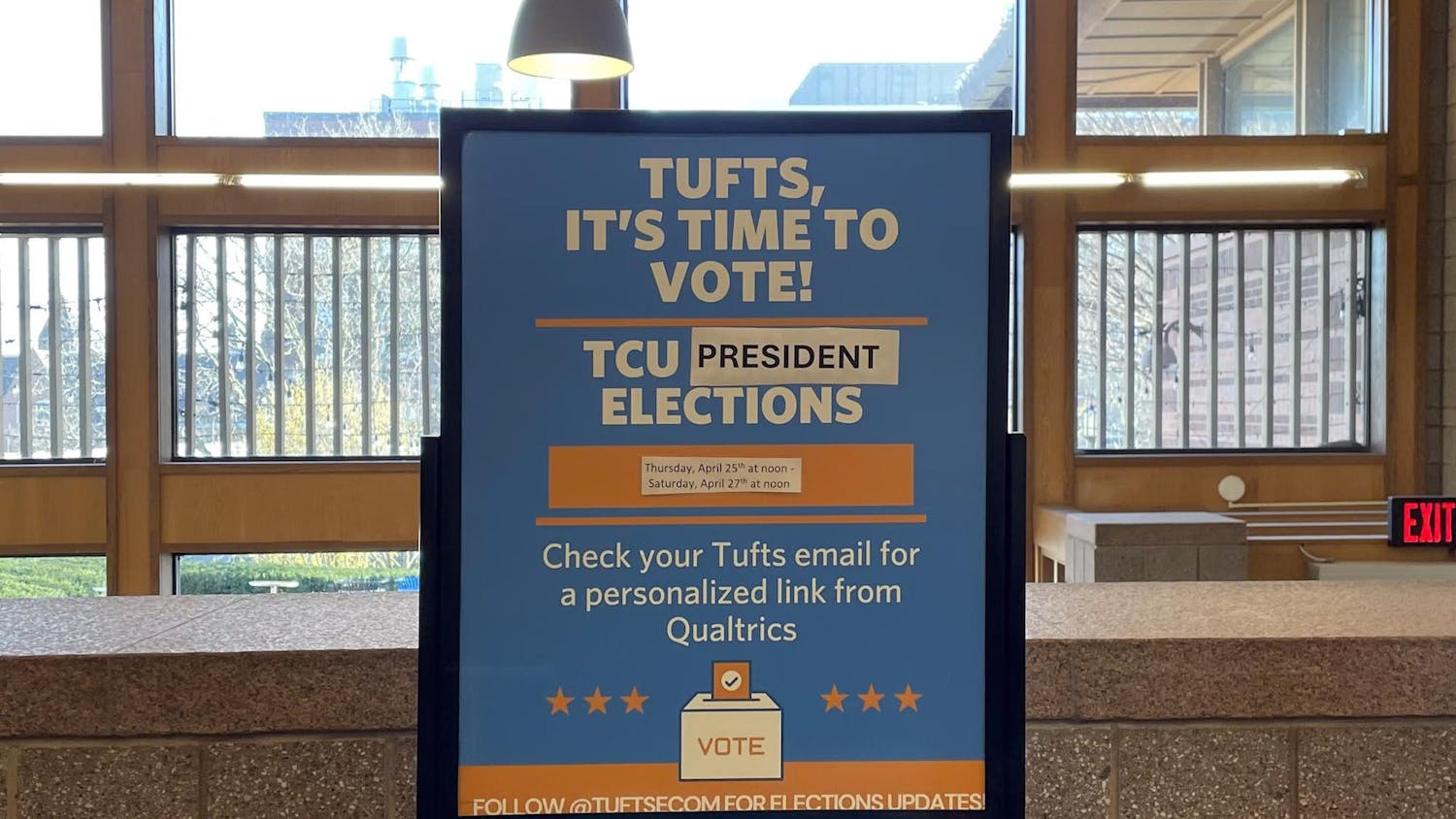After the Dec. 10 police eviction of Occupy Boston from Dewey Square in which 46 people were arrested, the Tufts Occupiers group remains active with an emphasis on community issues and collaboration with other student Occupy groups. Protestors across the country have had to regroup and find new ways to spread their message without having a physical encampment.
"When the news cycle has passed by for the moment, it's a question of how to stay relevant," senior Ryan Clapp, a member of the Tufts Occupiers, said. "We're looking at some other ways we can keep the conversation going, making it fun to participate while also meaningful."
Several of the actions Tufts Occupiers have planned for this semester revolve around smaller, community−based support, like advocating for Africana studies and working with local organization Save Our Somerville, according to Rachel Greenspan, a member of the Occupy movement.
"This has created an opportunity to develop new ways of giving voice back to the people and regaining agency on a grassroots community level," Greenspan said. "It really does give you such an opportunity to create positive change that can affect, not only the student body, but the Somerville community and beyond."
Greenspan said that at the Tufts Occupiers weekly meetings, students are always presenting new ideas for community issues that the group can focus on.
"Issues definitely come up all the time, meetings are open and everyone has an equal voice in it," Greenspan said. "When you're working to have a functioning society, I don't think there's an end point. There's never a perfect society. There's always something to work on, and we have a lot to work on now."
Tufts Occupiers also have plans to work with the Students Occupy Boston group, which meets at least once a month at different college campuses in the Boston area, according to Nathaniel Matthews, a member of the Occupy movement.
Based on a kissing protest conducted by Chilean students in July 2011, the Tufts Occupiers plan to orchestrate a similar event with the Students Occupy Boston group to continue their presence in the media. Although the details of the event — "If The Banks Can Make Out Like Bandits, So Can We" — haven't been sorted out yet, Tufts Occupiers proposed the idea earlier this month at a Students Occupy Boston meeting, according to Matthews, a freshman.
"It's easy to get into a lot of anger with marching and yelling, but we really want to show that it's a movement based out of love for humanity," Matthews said. "As much as everyone is really angry, that's not the focus. We're out because we love people and want them to live healthy and prosperous lives."
Matthews, who will vote for the first time this year, said he has reevaluated how he perceives candidates and their campaigns based on his experience with social activism in the Occupy movement.
"Unfortunately a lot of occupiers are so pissed off at both the Republicans and Democrats that they're not even interested in voting," Matthews said. "I recognize the failures of both parties, but I think voting — even if it's not as effective as we'd like it to be — it is still an action that everyone should do. It's not going to help to not vote."
But because the oft−quoted Occupy slogan "we are the 99 percent" has been bandied around in the media, some of the Tufts Occupiers said they worry that the message of the movement has been misconstrued.
Clapp said that as students, Tufts Occupiers have a unique ability to debunk some of these stereotypes people have about those involved with the protests and serve as educated participants.
"I think having students who are willing to put in time and research, and maybe don't look like [the Occupy protester] profile, is important to show that this movement isn't just for wackos," Clapp said. "It's the vocal minority that's getting the press coverage, but, in general, it's a pretty potent message about how money is made and spent in this country."
Regardless of the messages the media promotes about the movement, Matthews said he hopes more college students around the country will support the movement in whatever capacity they have time for.
"So many things that are so important to us in our society came from mass mobilizations of average, working class people that were resisted by the government," Matthews said.
"I encourage everyone to give as much as they can. In the end, social change will happen when the majority of people understands this is the way it needs to be," he added.





